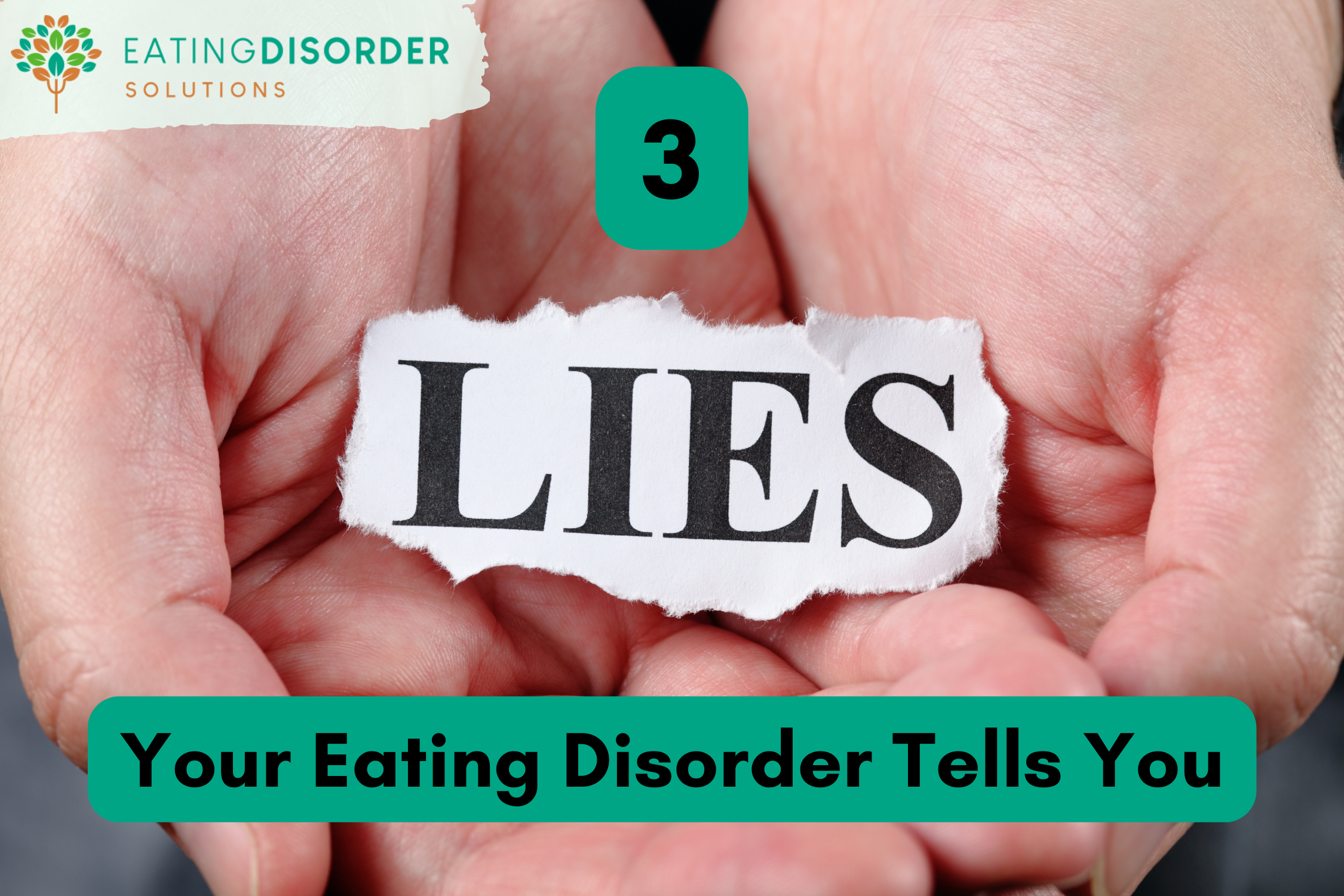Monster: noun:
1. a strange or horrible creature.
2. an extremely wicked or cruel being.
If you pulled out the dictionary and searched for “eating disorders”, directly underneath, you should find the same definitions that appear under “monster.”
Does it actually have that written in the dictionary?
No.
Am I making the terms “eating disorder” and “monster” interchangeable?
Yes.
Why?
Because too many vicious monsters have reared their intimidating heads, tearing people from their dreams, aspirations, and life goals. Too many monsters have whispered their damaging words into the vulnerable, into the sensitive, into the innocent minds of millions of people worldwide. Too many lives have been taken because of the manipulative monster that slowly becomes an eating disorder voice; affecting anyone that is in its path.
You may or may not think every negative thing your mind tells you is true, but those thoughts can leave lasting impressions and effects on our human psyche. According to the National Science Foundation, an average person has about 12,000 to 60,000 thoughts per day. Of those, 80% are harmful, and 95% are repetitive thoughts. If we repeat those negative thoughts, we begin to think negative way more than we think positive, possibly sending us into an emotional spiral that can lead to dangerous living conditions.
Lie #1: You’re Not Enough, and You Never Will Be
One of the main, repetitive lies an eating disorder can tell you is that you’re not enough. The feelings of self-love and self-compassion begin to be replaced with self-doubt and a self-consciousness that scares you into specific dietary or physical choices.
Let’s talk about what makes someone “good enough.”
Think about it like this: we are all humans, floating around on a giant rock, slowly (but still) hurtling towards the sun. There are billions of different life forms and species on the planet, and we’re still not even close to uncovering more than 5% of the ocean and even less when it comes to the universe.
You are here for a reason. Life was never meant to be easy, but it is meant to be worth it. The struggles we may have to overcome in our lives, as many people encounter, can be what pushes us to realize our potential and purpose. In order to make life fulfilling, you have to believe you’re worth it, too. If you’re being beaten down by the shame, worry, or angst of an eating disorder, you will eventually have these thoughts. We’re only human. But eating disorders are reckless monsters that feed on the anxiety we continue to provide for them.
What is good enough? Good enough is learning how to be content with your own life. Too many people believe happiness is a future event. And before we arrive, we need more money, have a successful career, find a partner, and settle down. And only then will we arrive at the destination of happiness. But when we arrive, we realize happiness isn’t there.
Happiness, self-love, peace – these are attainable emotions and feelings. They don’t just belong to specific people and discriminate against others. If you realize your potential, worth, and existence, why aren’t you already good enough? Your circumstances, past, genetics – they don’t define you. An eating disorder does not define you.
You are enough because you say you’re enough. You begin to believe and tell yourself that you’re good enough when you seek treatment and commit to your life-long dreams of success and health and what that means on your own terms. You learn coping skills that will adjust your mindset and defend your positive thoughts. Good things find you once you start manifesting that type of energy.
Lie #2: Without Me, You’d Be Nothing
Again, false. I want you to think about your life before this monster entered. Where were you? Who was around you? Why do you think this monster came to you? If you’re unsure of these answers, that’s a possible sign that you should be receiving treatment to understand yourself better and regain control.
Why do you believe you may need your eating disorder? Think about what “good” things it’s doing for you. Write them down.
Did you do it?
I hope you realize that once on paper, your eating disorder is not worth your time.
Now, that’s easier said than done, but that’s why Eating Disorder Solutions and other centers like ours exist. We understand that these conditions have voices that steal your identity. We understand that you know you’re having the thoughts, but you’re struggling with the ‘why’.
We know you must figure out the next steps to move forward with your life, leaving your ED in the rearview mirror.
Here’s a quick list of benefits of starting recovery today:
-
- You’ll better understand why and how your eating disorder may have started.
- You’ll get treatment for possible co-occurring disorders such as depression, anxiety, and trauma.
- You’ll learn healthy coping mechanisms when feeling overwhelmed.
- You’ll be able to fully understand that you’re not alone in this battle.
- You could feel inspired by others around you.
- You will begin to develop a positive relationship with food.
Without an eating disorder, you’d get your voice back. You’d get your identity back. And if you’ve lost who you were to this disease, you get to create a more powerful version of yourself after recovery. You don’t need this entity telling you what to do. Life is already hard enough.
Lie #3: Your Situation Is Too Unique; Recovery Isn’t an Option For You
This is known as the unseen faces of eating disorders. No matter your gender, ethnicity, or background, you deserve recovery. No matter how serious, mild, scattered, rare, or often your eating disorder symptoms are, you are worth recovery and treatment. Whoever has told you that you’re not sick enough is wrong, and whoever has said that you may be a lost cause is delusional. We are all on your side. Doctors, dieticians, therapists, counselors, chefs, nurses, and clinical directors; you have so many experts in your corner, aiding you the entire way.
When should you get treatment? As soon as you believe you need any help. You can usually tell when your behavior has become dysfunctional, such as hiding behavior, feeling shame, or carrying around guilt. This becomes ingrained and hard to change behavior, which is why therapy, such as Cognitive Behavioral Therapy (CBT), is so essential in these situations. In case you’re not certain, take our free eating disorder self-assessment here if you’re wondering if you may have an eating disorder.
Empathy and compassion are what you need, especially if your eating disorder voice has become so intrusive that you’re unsure what the next step should be. As many of our recovery counselors continuously advocate, self-love and acceptance are the biggest challenges while you’re battling an eating disorder. “Your pain and suffering are unfortunately very familiar to us, but that will be to your advantage. Recovery is possible. It is sometimes impossible to see yourself on the other side, and that’s okay. We will hope for you when you can’t hope for yourself until this is behind you.”
And from a motivated and healthy alumni perspective, “before treatment, life felt terrifying. Every day was another task I could fail, another way I could be wrong, not enough, too much. I didn’t have any self-acceptance, assurance, or confidence. After, I understand who I am and what I want. I no longer have this outside voice that keeps telling me that I’m “wrong” or I’m not “enough .”It’s an external force changing your ability to see yourself clearly.”’
An eating disorder can grip anyone at any time. Regardless of your mindset, genetics, or current circumstances, eating disorders do not discriminate. However, if you feel there may be a problem with how you’re coping or handling your eating disorder’s daunting and manipulative voice, now is the time for recovery.
Early intervention is so critical in eating disorders because breaking patterns and behaviors is such a big part of the treatment. The longer you leave it, the harder it gets. If you or someone you know is dealing with the harsh reality of an eating disorder right now, get help. At Eating Disorder Solutions, we accept multiple forms of insurance and offer various therapy types to battle the monster that is your eating disorder. None of this is your fault; you deserve peace, health, and recovery. Call today at 855-808-4213 or contact us online.



